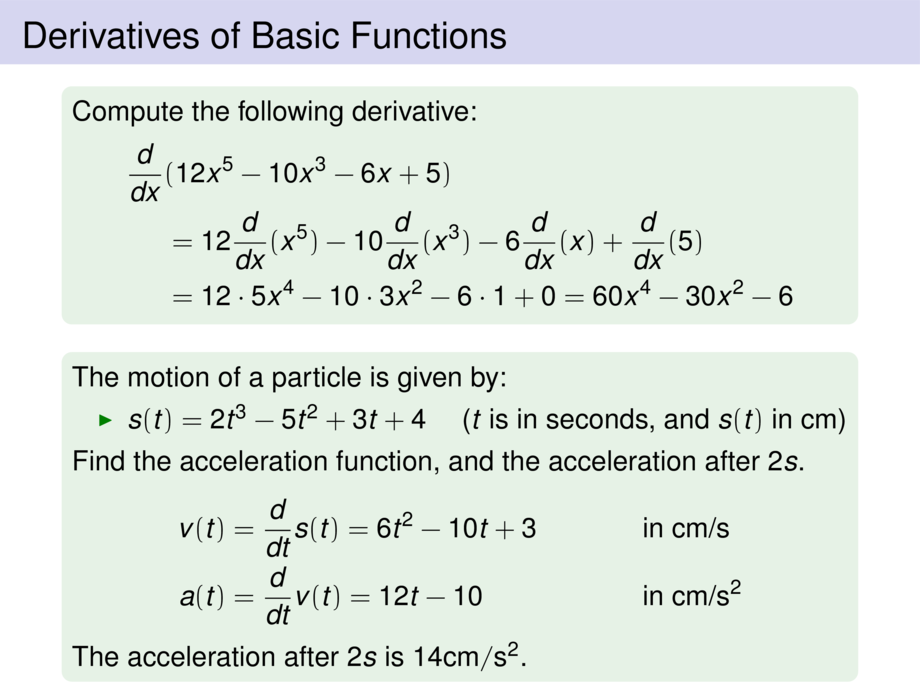



































































































40/81
\begin{frame}
\frametitle{Derivatives of Basic Functions}
\begin{exampleblock}{}
Compute the following derivative:
\begin{talign}
\frac{d}{dx} &(12x^5 - 10x^3 - 6x + 5) \\
&\mpause[1]{= 12\frac{d}{dx} (x^5) - 10\frac{d}{dx} (x^3) - 6\frac{d}{dx} (x) + \frac{d}{dx} (5) }\\
&\mpause[2]{= 12\cdot 5x^4 - 10 \cdot 3x^2 - 6\cdot 1 + 0 }
\mpause[3]{= 60x^4 - 30x^2 - 6 }
\end{talign}
\end{exampleblock}
\pause[5]\medskip
\begin{exampleblock}{}
The motion of a particle is given by:
\begin{itemize}
\item $s(t) = 2t^3 - 5t^2 + 3t + 4$ \quad($t$ is in seconds, and $s(t)$ in cm)
\end{itemize}
Find the acceleration function, and the acceleration after $2s$.
\pause\smallskip
\begin{talign}
v(t) &= \frac{d}{dt} s(t) = \mpause[1]{6t^2 - 10t + 3} && \mpause[4]{\text{in cm/s}}\\
\mpause[2]{a(t) }&\mpause[2]{= \frac{d}{dt} v(t) = \mpause[3]{12t - 10}} &&\mpause[5]{\text{in cm/s$^2$}}
\end{talign}
\pause\pause\pause\pause\pause\pause
The acceleration after $2s$ is $14\text{cm}/\text{s}^2$.
\end{exampleblock}
\end{frame}

